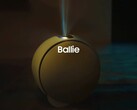LG has recently acquired Dutch tech company Athom, creator of the Homey smart home platform which includes a hub, bridge and a companion appstore. The agreement effectively secures LG an 80% stake in Athom, and includes a clause that allows LG to acquire the rest within three years. While the value of the deal is undisclosed, the Korean Economic Daily gives an estimate of 85 billion won ($61 million).
What this means for LG is expanded connectivity options. Hitherto, LG’s ThinQ platform (running on webOS) was mostly limited to LG gadgets and appliances, but with its newfound integration with the Homey suite, this will be expanding to include third-party devices. Unlike ThinQ, Homey has an open ecosystem that reaches across a variety of smart home OEMs over Bluetooth, WiFi, ZigBee, Z-Wave and Infrared. Homey Pro – available on Amazon – also connects with Matter and Thread, expanding the possibilities to over 50,000 connected gadgets.
LG implies in its acquisition statement that this is a natural progressionof the AI home from a hardware-first to a software-focused platform; a shift that began with the acquisition of Alphonso in 2021.
LG’s executive vice president, Jung Ki-hyun, expressed that the acquisition represents “a cornerstone for LG’s AI home business”. By AI, LG is referring to “Affectionate Intelligence” – a concept the company first mentioned at CES this year, ostensibly to differentiate themselves from the AI home wave led by rival companies such as Samsung, courtesy of its SmartThings platform.
Like LG, Samsung bought SmartThings in 2014 for $200 million; a move that resulted in greater connectivity options for Samsung appliances. Similarly, Homey will be fully integrated with webOS and LG smart home gadgets, while Athom continues to operate independently. The founders, Emile Nijssen & Stefan Witkamp, will remain as executives of Athom which remains “committed to developing developing Homey Cloud and Homey Pro”.
In its press release, Homey avers that it is working on “an ever-expanding line of new products”, which will likely also integrate with the ThinQ ecosystem. The company also emphasizes how the collaboration with LG will lead to optimized energy management solutions for smart homeowners, allow users to control ThinQ-enabled devices from its platform and put LG TVs front and center in the smart home.
But therein lies the conundrum: while Homey seeks to retain its brand and the privacy-first paradigm, it is still unclear how providing LG with data about its customers’ usage patterns will preserve that legacy.















